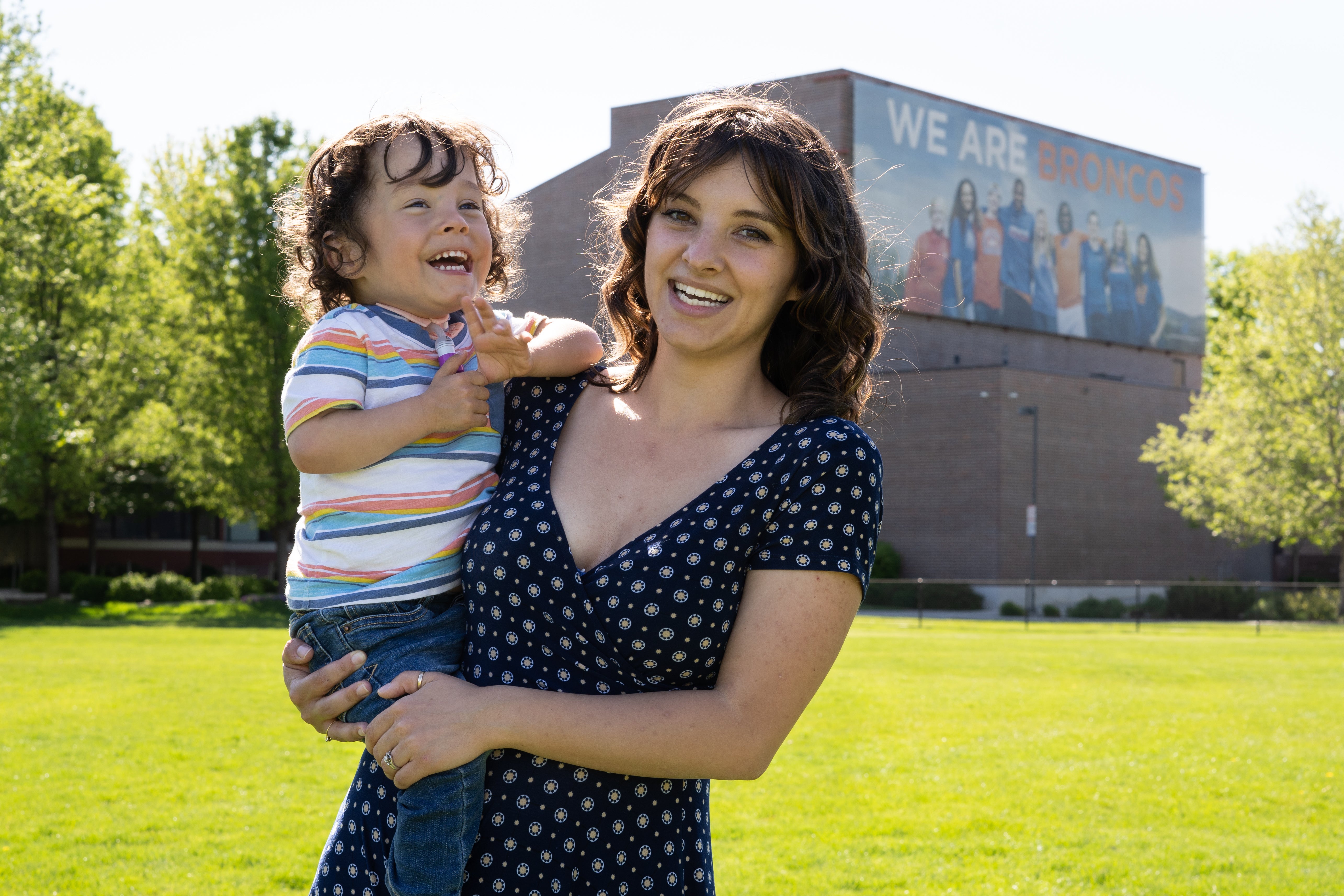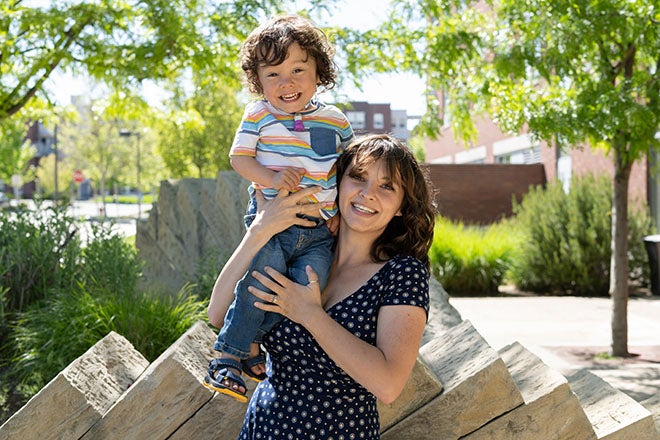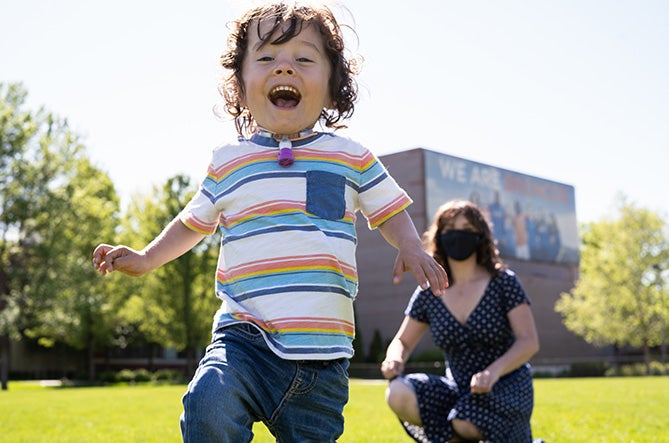
Emma Ballantyne is a second generation immigrant from the Azores of Portugal as well as a first generation college student. She is the full-time caretaker of her medically challenged son who is also her source of inspiration. Ballantyne has a Bachelor of Arts in Communications and is currently working towards a master’s degree in social work. She is working with the Center for the Study of Aging for her internship placement. She is a great fit for a program called the Family Caregiver Navigator program, a project of the Idaho Caregivers Alliance.
A caregiver is someone who provides care for another person, family member or non-family member, ages newborn – 100 years. This role can be extremely time-consuming and stressful, which can put strain on a caregiver’s personal life.
Family Caregiver Navigators conduct an evidence-based assessment with the caregiver, then build a care plan featuring resources specific to the needs of the caregivers with whom they connect.
Ballantyne’s passion for assisting caregivers came from her own experience. Her son was born 15 weeks premature and after spending 250 days in various hospitals, has multiple medical issues that require more than the typical parents are able to provide.

“It feels isolating after being released from the hospital. I’m my child’s nurse, respiratory therapist, and mom all at the same time” Ballantyne said. After bringing her son home from the hospital, she had to learn a whole new language of medical terms, as well as how to provide her son with life sustaining assistance such as oxygen.
Having assistance from the Idaho Caregivers Alliance would have meant a lot to Ballantyne. “I would have welcomed anyone stepping in to help me create a plan. For parents like us, coming home and knowing there is a net of support out there, that was not judgmental but simply there to listen and connect, is a relief.”
Learning to Connect:
Ballantyne learned about the Center for the Study of Aging through Sarah Toevs, director of the Center for the Study of Aging. Ballantyne was an employee at University Event Services and was working with Toevs on a virtual event. They were discussing current events happening at the Center for the Study of Aging, and Toevs made the connection.
Ballantyne considered a master’s degree in social work during her undergraduate, however, she couldn’t relate to the populations she wanted to work with. After her son was born, that changed. She experienced medical social work and was able to see it’s strengths and needed improvements. She chose the online program because she needed to maintain a flexible schedule and continue to prioritize her family.
Ballantyne chose to continue her education to learn how to navigate the medical care systems as well as make stronger connections with the people she supports. The Master of Social Work online program also taught her how to approach and make connections with caregivers of different backgrounds.
Linda Kauffman, an administrative assistant for the School of Social Work online program, said “You can tell with some people that they are going to do great things for others. Emma is one of those people. She is incredible.”
Caregivers Receive Critical Support:
The Idaho Caregivers Alliance connects caregivers with resources that will help take strain off of certain aspects of their personal lives. The first step in caregivers becoming connected with the alliance are finding pamphlets or hearing by word of mouth from medical providers. Then, they contact the alliance and speak to a navigator intake coordinator.
From there, they have an hour-long consultation with navigators like Ballantyne to measure something called a Burden scale. This scale measures how heavy the burdens are in a caregiver’s relationships and resources as well as the level of stress and depression they’re feeling. The navigator analyzes and summarizes the areas that the caregiver needs help in or needs to be supported in, and then connects the caregiver with resources for support in those specific areas. After the follow-up meeting, navigators like Ballantyne make initial contact with the recommended resources, so the caregivers don’t feel overwhelmed by extra work.
The alliance follows the caregivers in three month intervals for up to a year. After that year ends, the navigators will re-do the assessment to see if their intervention was effective and burden levels have changed.

Ballantyne explained that culture poses a challenge when trying to get caregivers involved with the program. Parents especially struggle to identify as caregivers since they feel they have to go the extra mile for their child. They don’t always consider the burden it places on their lives and the ways in which a greater support system can help them sustain their role as a caregiver.
Learn more about the Master of Social Work Online program.
By: Hannah McNamee